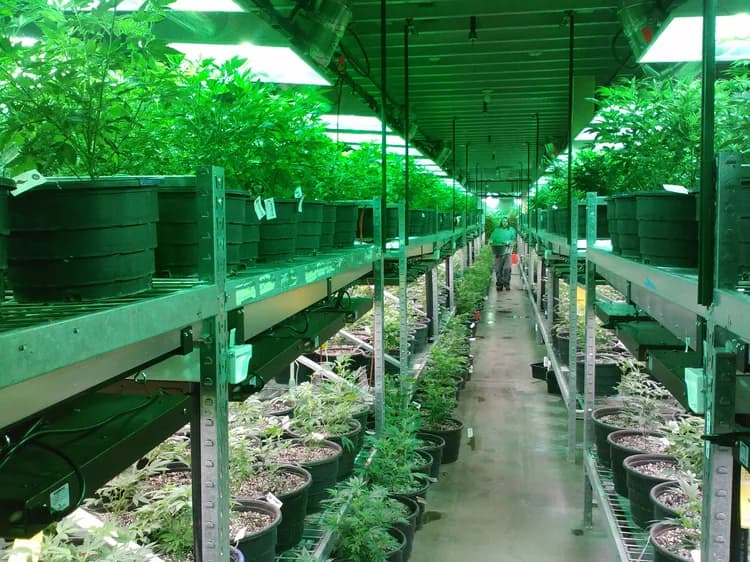
Limited Data On Medical Cannabis Use In Children
A systematic review of published studies on the use of medical cannabis in children and adolescents finds a notable lack of studies and a minimal number of the randomized, controlled trials needed to confirm the effectiveness of a treatment. In their paper published in the journal Pediatrics, Massachusetts General Hospital (MGH) investigators Shane Shucheng Wong, MD, and Timothy Wilens, MD -- both of the MGH Department of Psychiatry -- report that their review suggests only two pediatric uses of medical cannabis -- to relieve chemotherapy-induced nausea and vomiting and to reduce seizures -- are supported by existing studies.
"Medical cannabis is now legal in 29 states and the District of Columbia, and in those areas with active programs, children and adolescents can legally access medical cannabis with certification from their doctor and consent from a parent or guardian," says lead author Wong. "This means that doctors and families need to understand what we know and what we don't yet know about medical cannabis in order to make the best decision for the health of the individual child."
Two synthetic cannabinoids -- compounds that act on specific receptors in the brain -- have been approved for medical use in the U.S., both of which mimic a form of THC (tetrahydrocannabinol), the compound responsible for the "high" of recreational cannabis use. Dronabinol (Marinol) is approved to treat chemotherapy-induced nausea and vomiting in both children and adults, while the pediatric use of nabilone (Cesamet) carries a caution. A third cannabinoid, cannabidiol, is currently in phase 3 trials for treatment of seizures.
The researchers followed established procedures in searching for studies of medical cannabis use listed in major research indexes and selected out those that primarily enrolled participants aged 18 and under and included original data about a clinical use. Only 21 papers reporting on a total of 22 studies met their criteria. The papers were published from 1979 to 2017, 14 within the last five years. Only 5 were randomized controlled trials, the others being case reports, open-label trials, parent surveys or case series. The most common conditions studied were chemotherapy-induced nausea and vomiting (6 studies) and seizures (11 studies).
The trials for chemotherapy side effects -- 4 of which were randomized controlled trials -- found that medical cannabis was significantly better than anti-nausea drugs standard at the time of study for reducing nausea and vomiting. Similarly the epilepsy studies, including a single randomized trial, found that medical cannabis reduced the frequency of seizures in participants, some with treatment-resistant seizures. Limitations of these studies include lack of a control group for many, small sample size, differences in the medications used and lack of long-term follow-up.
Two studies investigating the use of cannabis for spasticity and three case report on use for neuropathic pain, post-traumatic stress disorder or Tourette syndrome all lacked controls or blinding, conferring a high risk of biased findings. "At this time," Wong says, "we do not have good evidence that cannabis can be useful in children and adolescents for any conditions other than seizures or chemotherapy-induced nausea and vomiting."
He and Wilens also note that decisions regarding medical cannabis use need to weigh the likely benefits against the known risks, which -- based on the results of studies in recreational cannabis users -- are probably even greater for children and adolescents. Their still-developing brains may make them even more vulnerable than adults to cannabis's negative effects on learning, memory, attention and problem solving. Additional research is needed to better understand the risks and long-term effects of cannabis-based drugs in this population.
When asked how he would advise the parents of a child with a condition that could be alleviated with medical cannabis, Wong states, "I would recommend they have a thorough discussion of the risks and benefits with a physician who has specialized knowledge and experience in the area. For chemotherapy side effects, that could be a pediatric oncologist or palliative care specialist; for seizures, that could be a pediatric neurologist, especially at an academic medical center involved in the ongoing clinical trials of medical cannabis for seizure disorders."
Materials provided by Massachusetts General Hospital. Note: Content may be edited for style and length.
Disclaimer: DoveMed is not responsible for the accuracy of the adapted version of news releases posted to DoveMed by contributing universities and institutions.
References:
Shane Shucheng Wong, Timothy E. Wilens. (2017). Medical Cannabinoids in Children and Adolescents: A Systematic Review. Pediatrics. DOI: 10.1542/peds.2017-1818
Related Articles
Test Your Knowledge
Asked by users
Related Centers
Related Specialties
Related Physicians
Related Procedures
Related Resources
Join DoveHubs
and connect with fellow professionals

0 Comments
Please log in to post a comment.